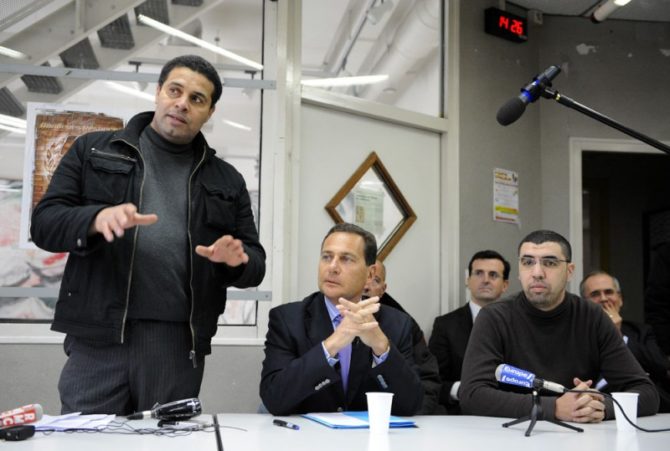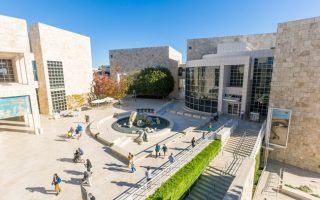The Great Debate

“How do you react,” the legendary literary lion Bernard Pivot asked me once on his television show Double Je, “when a Frenchman treats you or your ideas with contempt just because you’re American?”
It was essentially a double-edged question, I thought later, acknowledging not just eternal anti-Americanism, but the ample regard that many French people attach to everything with a French label. I replied that for me, a white male born in the Deep South, any experience with the wrong side of exclusion was salutary. Recognizing racism or xenophobia for the curse it is didn’t remove all the sting of discrimination, but intellectualizing the question was a worthy antidote.
Pivot’s question has come to mind often in the context of France’s “great debate” over its national identity, a current chapter in the life of this nation that raises many more questions than whatever answers it might deliver. The nation-wide debate was officially organized by Eric Besson, Minister of Immigration, Integration, National Identity and Solidarity. With community conferences and town hall meetings scheduled throughout the country over a three-month period starting last November, the great debate’s objective is “to associate all of our fellow citizens in a profound discussion of what it means, at the beginning of the 21st century, to ‘be French’.”
It’s tempting to dismiss the issue: Resolved, the French national identity is and shall be simply French. And many Frenchmen have thus dismissed it. “What do your identity papers say?” asked a friend. “That’s the answer to Besson’s question.”
But while Besson has embraced the question and organized the great debate, he can’t claim it as his own. As in most things in France these days, the president is boss. Besson is “only an agent” for Nicolas Sarkozy, said Jean-Marc Ayrault, head of the Socialist bloc in the National Assembly and no admirer of either man, nor of this debate.
Regional elections
In his campaign for president in 2007, Sarkozy leapt ahead in part by taking over the question of national identity. It’s a wedge issue here, and Sarkozy used it to solidify his position with voters on the right, especially the far right, who abandoned Jean-Marie Le Pen, the tired old National Front kingpin, to a surprising degree. Since “national identity” presupposes assimilation, and the left preaches multiculturalism, it’s an issue that gives the left no purchase. In fact, it leaves the left in an uncomfortable position—you can’t run a successful campaign against being French. Not in France, at any rate.
Sarkozy’s re-election campaign—and no one doubts that he’ll run again—does not come up until 2012, so it’s still early to be rehearsing stump speeches for that contest. But elections for regional councils will be held in March—just after the publication of a major report on the national identity debate expected this month. Could there possibly be a tie-in?
The last regional elections, in 2004, gave the Socialists control of all but two of the 26 regional councils—at the time it was a negative reaction to Jacques Chirac’s then two-year old presidency. That solid hold on regional councils should have been an important political redoubt. But the divided party proved unable to exploit that strength in the race between Sarkozy and Ségolène Royal three years later, and it is even more fractured now.
Nearly three years into his presidency, Sarkozy is at pains to find ways of avoiding a similar embarrassment. Even in his own party, the Union for a Popular Majority (UMP), his support has softened—although to the advantage of no obvious competitor—and among the general public his approval ratings continue along an unwavering downhill path.
Multicultural coin
Both Besson and Sarkozy have offered the rhetoric of a great cause in explaining the debate and defending it. They state the necessity of confronting the hard issues, of talking them through to resolution, of defining the multiple strengths that France has drawn from all of its components, including immigrants, and uniting them in a way that will withstand the forces of globalization. The pledges of allegiance to multiculturalism sound worthy of striking on a coin, as in E Pluribus Unum. But that’s hardly a fresh idea. Nor is it novel to take pride in your nationality. We Americans, for instance, regularly work ourselves into a rapture in contemplating the unchallenged glories of our country. (Though our fondness for the immigrant story varies by region and epoch.)
But there’s alarming novelty in the overall context for France’s debate. The timing may be political, but there’s legitimate reason to put forward the question. Consider these elements in the context: Globalization has forever undone France’s historic approach to competition from abroad, which was ferocious protectionism. France is a proud nation of refuge, but for immigrants it often fails as a land of opportunity. The causes of the riots in the Paris suburbs a few years back remain largely unrelieved. Fears of an inevitable “Eurabia” erasing cultures and subsuming countries are focused on France, which has more Islamic immigrants (an estimated five to six million) than any other country in Europe.
But the growing apprehension can be measured in other, less likely places: the Swiss have banned any new minarets; the Danes are resisting violently two new grand mosques in Copenhagen. And Islamic terrorism is not some flight of fancy. France has not been touched in a major way in many years, but the bombings in Spain and England have provided chilling examples. A fresh report from Italy about Calabrian peasants chasing down mostly illegal African immigrants and beating them brings to mind a story related by Graham Robb in his book The Discovery of France: A Historical Geography (W.W. Norton, 2007). In the 1740s, he writes, a cartographer was hacked to death after venturing into a mountain village somewhere in the Rhône Valley. The villagers mistrusted his strange clothes and behavior. The story wouldn’t meet today’s journalistic standards for sourcing (who exactly got the news out?) but it still serves as a message on national identity. Whatever the current status of foreigners in France, it seems there has been progress.
In an age of cynicism, it’s not surprising that Sarkozy gets no credit for anything except cynicism in staging the great debate. But maybe he should get just a little recognition. Maybe he’s onto something.
On a more local level, the present debate in my own village in southern France isn’t about immigration or identity, but about parking. The mayor—and mayors may be the main beneficiary of the decentralized power initiated by François Mitterrand—is having the village’s central square remade into something pretty rather than functional. Which means replacing parking spaces with park benches. Pretty is as pretty does, and the betting is that this won’t be pretty for the little shops that hold out in centre ville against the discounts and free parking offered by the giant supermarkets on the edge of town.
The government has set up a website (in French only) where you can monitor the wide variety and huge volume of opinions on the issue.
On the matter of Eurabia, there’s an effective rebuttal to the glut of scary books in the current issue of Foreign Policy, written by Justin Vaïsse, a senior fellow at the Brookings Institute: website.
Originally published in the February 2010 issue of France Today.
Share to: Facebook Twitter LinkedIn Email



